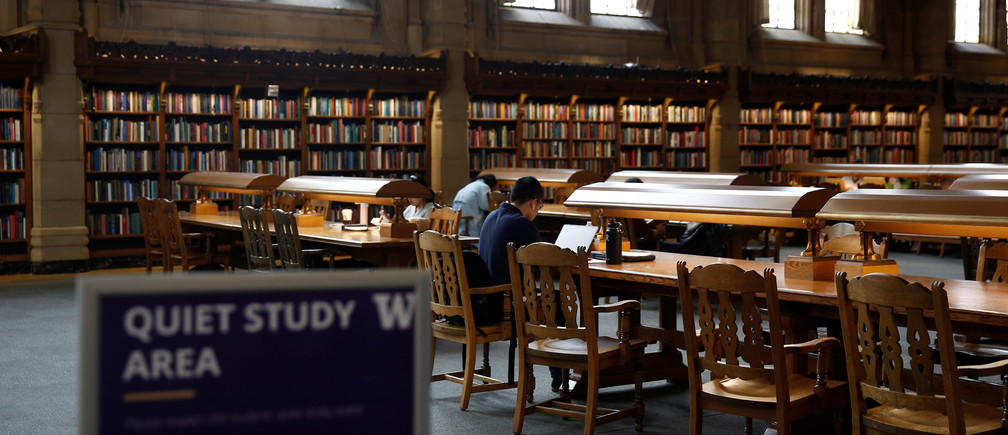Higher education forms the backbone of Knowledge-based economies in the developed world. According to the International Covenant on Economic, Social and Cultural Rights (1966), provision of higher education is the responsibility of the state. Due to precarious and fragile service conditions of the teaching community before and after the world wars, the international community started to recognise the role of higher education and higher educational personnel in uplifting the society via innovations. As part of recognising the role of the teaching community, the United Nations adopted several conventions over the past 70 years in order to ensure their academic freedom, social security and basic rights. These conventions bound the governments all over to safeguard the interests of the community and establish relevant institutions for uplifting higher education.
The Higher Education Commission of Pakistan (HEC) and similar organizations in other countries were also established in the light of the 'Recommendation concerning the Status of Higher-Education Teaching Personnel' (UNESCO's Paris convention, 1997). The purpose of such organisations was to improve the standards of higher education by encouraging innovations in teaching and research, to discourage fake degrees and to safeguard the interests of the teaching community. The Paris recommendations state that the member states and higher education institutions should encourage aid programs to the developing countries to help sustain an academic environment which offers satisfactory conditions of work for higher-education teaching personnel in those countries, so that the exodus may be contained and ultimately reversed. The Paris convention further states that member states are under an obligation to protect higher education institutions from threats to their autonomy coming from any source and that self-governance, collegiality and appropriate academic leadership are essential components of meaningful autonomy for institutions of higher education.
Students can be seen using tablets to learn during the pandemic. SOURCE: AFP
In developing countries, autonomy of the universities and the higher education personnel have always been at stake due to persistent political pressure, super-imposition of umbrella institutions that are least representative of the higher education personnel (the teaching community), harassment of personnel on grounds of freedom of expression etc. In this regard, the Paris convention states 'Higher-education teaching personnel should enjoy those internationally recognised civil, political, social and cultural rights applicable to all citizens. They should not be hindered or impeded in exercising their civil rights as citizens, including the right to contribute to social change through freely expressing their opinion of state policies and of policies affecting higher education’.
Investment in higher education has proven to be of little value in developing countries due to a variety of reasons including seriously flawed regulations; which are in contradiction to international conventions on human rights, political pressure delimiting institutional autonomy, lack of academic freedom and denying basic rights to the teaching community e.g. job security, transparency, the right to association etc, in stark violation of the international Labor laws (1948) etc.
The Paris convention of 1997, which has transformed the entire spectrum of higher education around the globe, recommends a just and open system of career development including fair procedures for appointment, tenure, promotion, dismissal, and other related matters. It further emphasises that as tenure constitutes one of the major procedural safeguards of academic freedom, security of employment in the profession, should be safeguarded as it is essential to the interests of higher education as well as those of higher-education teaching personnel. It ensures that higher-education teaching personnel who secure continuing employment following rigorous evaluation can only be dismissed on professional grounds and in accordance with due process. However, in Pakistan, HEC's regulations and its practices in place for such matters lack clarity. This has been ultimately resulting in continual and massive brain drain from the country.

A Reuters file image of students studying at a university library
A global drive initiated by UNESCO after the Paris convention of 1997 resulted in massive reforms in the higher education sector around the world. In Pakistan too, HEC replaced University Grants Commission (UGC) in 2002 for the promotion of higher education in Pakistan. It aimed at introducing reforms in the higher education sector as recommended by the Paris convention. One of the primary responsibilities of HEC is to look after the matters of higher education personnel. In this connection, HEC introduced the Tenure Track System (TTS) in HEIs, which was intended to replace the old BPS system over the course of time. This system was borrowed from the US and adopted without any prior proper homework in such haste that it has caused serious damages to the standards of higher education and the future of thousands of higher education personnel. The reasons for this debacle include ill-managed policy making such as the sudden introduction of the TTS statutes (2008 version) which are lacking in many respects including clarity as well as conformity to the local conditions. Some clauses of the statutes are either self-contradictory or are in contradiction with the explanatory notifications and practices of the HEC. In contrast to the Paris recommendations of 1997, the TTS statutes are devoid of provisions of human rights, academic freedom, job security, transparency and do not respect autonomy of the HEI's. The ideal of replacing the old BPS system with TTS has miserably failed due to adopting the system in hurry, mismanagement and the lack of participation of the stakeholders in policy making in the commission. Despite the fact that there are thousands of PhDs serving on TTS (who were supposed to provide long term policies for sustainable developments to other institutions), they have no representation in the Commission. Of course such inclusion needs amendments in the Constitution of HEC from the National Assembly, but that can be done and should be done at the earliest. The provision of including a ‘person of eminence’ in the Commission is practiced in the same manner as in many other HEIs, for benefiting some old buddies. Hard to believe that Pakistan cannot find a single ‘person of eminence’ amongst the thousands of PhDs on TTS. This is just one example of flawed policy making, as here foremost focus is to point out flaws in policy making and its consequences.
Consequences of such ill-thought policy making are catastrophic. There is no long-term policy provision whatsoever at the HEC level. HEC is continually interfering in autonomy of hundreds of universities with its confused policies, self-contradictory notifications/ interpretations of rules and lack of continuity. Consider now an example of HEC’s ‘rational’ and ‘long term’ policy making. Previous ‘esteemed’ members of Commission forced universities to hire faculty on TTS and present ‘esteemed’ members are abstaining universities from such hiring, creating a whole lot of confusion at every level. Similarly, although each HEI has got statutory bodies for selection and appointment of faculty wherein HEC nominees are permanent members in such bodies, HEC does not recognise any appointment made by these bodies until and unless endorsed by it. It was known to the policy makers that statutory body meetings are not convened very frequently and that it could cause procedural delays in processing TTS cases, yet they overlooked the fact and that is why today thousands of PhD faculty are not sure if HEC will ever endorse their appointments or they will have to leave TTS after many years of service.
Another hot topic these days is the presently proposed admission policy and studies guidelines by HEC, for PhD students. Main theme in this case is same as that was at the time of introducing TTS, i.e. implementing ‘imported’ system in Pakistan. Interestingly, mistake is again the same as that was in the case of TTS, i.e. not proper homework done by taking local circumstances and non-uniform distribution of resources at national level into account. Therefore, no different outcome should be expected in this case either. Such tremendous policy shifts occur with every new hiring at top most level in HEC, denting the Higher Education infrastructure again and again, and wasting whatever little progress was made during previous years.
To make the long story short, prosperity of any developing country in general, and that of Pakistan in particular, is directly linked to the state of Higher Education (R & D) in Pakistan, and future of Higher Education is dependent upon sane policy making. This is unlikely to be achieved without involvement of academia in policy making and ensuring the autonomy of HEC and HEIs. As far as the freedom of thought and expression in academia is concerned, one rarely comes across any criticism on HEC/HEIs now as many of such critics have faced the consequences of committing such sins. One cannot achieve glory in the times to come unless lessons from previous mistakes are learnt. We will always be facing such U-turns in policies if we continue to compromise on the autonomy of HEIs and shun the role of academicians as policy makers. TTS statutes version 2 in its current form are incomplete, have no clarity and provisions for academic freedom, job security, human rights protection etc. It is high time now that the education policy makers of Pakistan bring this system in conformity with the local conditions in the light of the Paris recommendations after proper consultations with all of the stakeholders and come up with an appropriate newer version in order to save the future of higher education of Pakistan.
(The writer is an associate professor at COMSATS University Islamabad)
